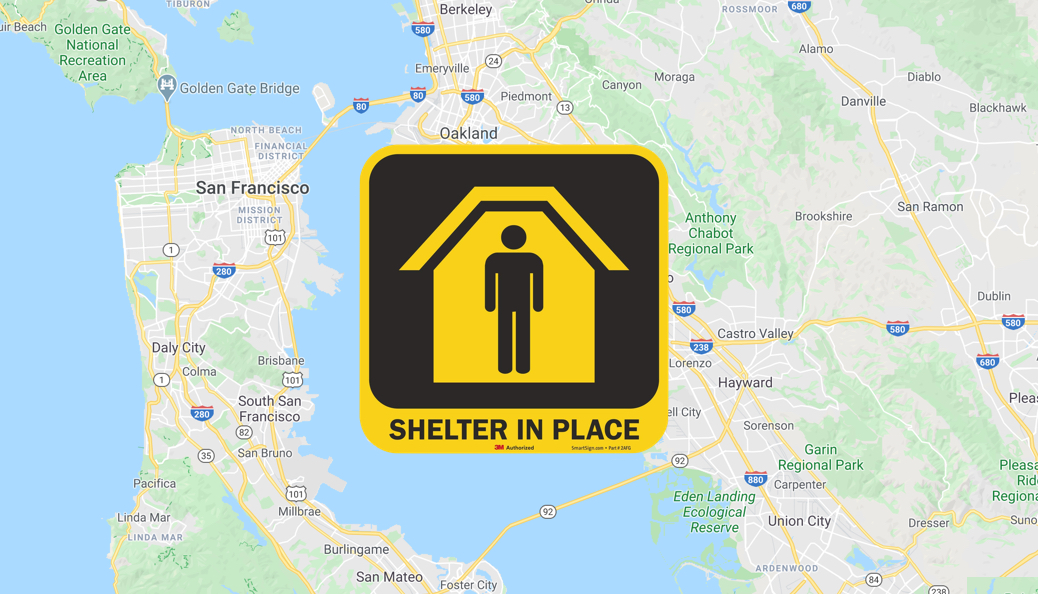Several Bay Area jurisdictions officially announced an extension Wednesday of the regional COVID-19 coronavirus shelter-in-place order through May 31 while easing operating restrictions for businesses that operate outdoors.
The new order, which applies in Alameda, Contra Costa, Marin, San Francisco, San Mateo and Santa Clara counties as well as the city of Berkeley, takes effect Monday following the conclusion of the region’s previous shelter-in-place order on May 3.
Public health officials said practices like physical distancing have helped stem the tide of new coronavirus cases enough to tweak the shelter-in-place order and allow some businesses to resume operations.
As allowed in the state’s shelter-in-place order, all construction projects are allowed to proceed, provided that construction sites and workers follow established health and sanitization protocols. The order also allows the resumption of real estate transactions and operation by outdoor businesses such as retail nurseries, landscapers and gardeners.
“Our goal is to gingerly chart a course to be the most health protective,” Santa Clara County Health Officer Dr. Sara Cody said. “We recognize that we can now better measure the health impacts of COVID-19 but much more complex will be to measure the health impact of shelter-in-place and our other measures.”
Public health officials said workers at businesses that plan to resume operations can access child care from programs that are still operational. Under the regional order, child care programs can operate with no more than 12 children at a time and groups of children are not allowed to mix to prevent the virus’ spread.
Cody said Santa Clara County plans to monitor five indicators when considering future modifications to the shelter-in-place order, including a stagnation or decrease in new cases and hospitalizations, the regional supply of personal protective equipment, the county’s testing capacity and its capacity for contact tracing to isolate vectors for the virus as quickly as possible.
“A pandemic of this scale is unprecedented,” Cody said. “We are progressing steadily as a region, but we must reduce restrictions on activity gradually or we will put the lives of many community members at risk.”
